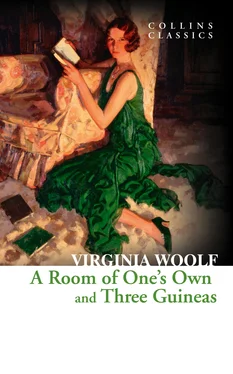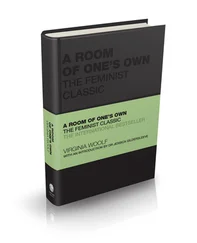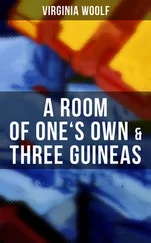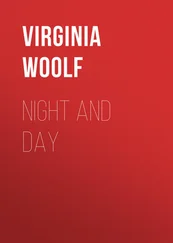Virginia Woolf - A Room of One’s Own and Three Guineas
Здесь есть возможность читать онлайн «Virginia Woolf - A Room of One’s Own and Three Guineas» — ознакомительный отрывок электронной книги совершенно бесплатно, а после прочтения отрывка купить полную версию. В некоторых случаях можно слушать аудио, скачать через торрент в формате fb2 и присутствует краткое содержание. Жанр: unrecognised, на английском языке. Описание произведения, (предисловие) а так же отзывы посетителей доступны на портале библиотеки ЛибКат.
- Название:A Room of One’s Own and Three Guineas
- Автор:
- Жанр:
- Год:неизвестен
- ISBN:нет данных
- Рейтинг книги:5 / 5. Голосов: 1
-
Избранное:Добавить в избранное
- Отзывы:
-
Ваша оценка:
- 100
- 1
- 2
- 3
- 4
- 5
A Room of One’s Own and Three Guineas: краткое содержание, описание и аннотация
Предлагаем к чтению аннотацию, описание, краткое содержание или предисловие (зависит от того, что написал сам автор книги «A Room of One’s Own and Three Guineas»). Если вы не нашли необходимую информацию о книге — напишите в комментариях, мы постараемся отыскать её.
A Room of One’s Own and Three Guineas — читать онлайн ознакомительный отрывок
Ниже представлен текст книги, разбитый по страницам. Система сохранения места последней прочитанной страницы, позволяет с удобством читать онлайн бесплатно книгу «A Room of One’s Own and Three Guineas», без необходимости каждый раз заново искать на чём Вы остановились. Поставьте закладку, и сможете в любой момент перейти на страницу, на которой закончили чтение.
Интервал:
Закладка:
Here then was I (call me Mary Beton, Mary Seton, Mary Carmichael or by any name you please–it is not a matter of any importance) sitting on the banks of a river a week or two ago in fine October weather, lost in thought. That collar I have spoken of, women and fiction, the need of coming to some conclusion on a subject that raises all sorts of prejudices and passions, bowed my head to the ground. To the right and left bushes of some sort, golden and crimson, glowed with the colour, even it seemed burnt with the heat, of fire. On the further bank the willows wept in perpetual lamentation, their hair about their shoulders. The river reflected whatever it chose of sky and bridge and burning tree, and when the undergraduate had oared his boat through the reflections they closed again, completely, as if he had never been. There one might have sat the clock round lost in thought. Thought–to call it by a prouder name than it deserved–had let its line down into the stream. It swayed, minute after minute, hither and thither among the reflections and the weeds, letting the water lift it and sink it until–you know the little tug–the sudden conglomeration of an idea at the end of one’s line: and then the cautious hauling of it in, and the careful laying of it out? Alas, laid on the grass how small, how insignificant this thought of mine looked; the sort of fish that a good fisherman puts back into the water so that it may grow fatter and be one day worth cooking and eating. I will not trouble you with that thought now, though if you look carefully you may find it for yourselves in the course of what I am going to say.
But however small it was, it had, nevertheless, the mysterious property of its kind–put back into the mind, it became at once very exciting, and important; and as it darted and sank, and flashed hither and thither, set up such a wash and tumult of ideas that it was impossible to sit still. It was thus that I found myself walking with extreme rapidity across a grass plot. Instantly a man’s figure rose to intercept me. Nor did I at first understand that the gesticulations of a curious-looking object, in a cutaway coat and evening shirt, were aimed at me. His face expressed horror and indignation. Instinct rather than reason came to my help, he was a Beadle; I was a woman. This was the turf; there was the path. Only the Fellows and Scholars are allowed here; the gravel is the place for me. Such thoughts were the work of a moment. As I regained the path the arms of the Beadle sank, his face assumed its usual repose, and though turf is better walking than gravel, no very great harm was done. The only charge I could bring against the Fellows and Scholars of whatever the college might happen to be was that in protection of their turf, which has been rolled for 300 years in succession they had sent my little fish into hiding.
What idea it had been that had sent me so audaciously trespassing I could not now remember. The spirit of peace descended like a cloud from heaven, for if the spirit of peace dwells anywhere, it is in the courts and quadrangles of Oxbridge on a fine October morning. Strolling through those colleges past those ancient halls the roughness of the present seemed smoothed away; the body seemed contained in a miraculous glass cabinet through which no sound could penetrate, and the mind, freed from any contact with facts (unless one trespassed on the turf again), was at liberty to settle down upon whatever meditation was in harmony with the moment. As chance would have it, some stray memory of some old essay about revisiting Oxbridge in the long vacation brought Charles Lamb to mind–Saint Charles, said Thackeray, putting a letter of Lamb’s to his forehead. Indeed, among all the dead (I give you my thoughts as they came to me), Lamb is one of the most congenial; one to whom one would have liked to say, Tell me then how you wrote your essays? For his essays are superior even to Max Beerbohm’s, I thought, with all their perfection, because of that wild flash of imagination, that lightning crack of genius in the middle of them which leaves them flawed and imperfect, but starred with poetry. Lamb then came to Oxbridge perhaps a hundred years ago. Certainly he wrote an essay–the name escapes me–about the manuscript of one of Milton’s poems which he saw here. It was Lycidas perhaps, and Lamb wrote how it shocked him to think it possible that any word in Lycidas could have been different from what it is. To think of Milton changing the words in that poem seemed to him a sort of sacrilege. This led me to remember what I could of Lycidas and to amuse myself with guessing which word it could have been that Milton had altered, and why. It then occurred to me that the very manuscript itself which Lamb had looked at was only a few hundred yards away, so that one could follow Lamb’s footsteps across the quadrangle to that famous library where the treasure is kept. Moreover, I recollected, as I put this plan into execution, it is in this famous library that the manuscript of Thackeray’s Esmond is also preserved. The critics often say that Esmond is Thackeray’s most perfect novel. But the affectation of the style, with its imitation of the eighteenth century, hampers one, so far as I can remember; unless indeed the eighteenth century style was natural to Thackeray–a fact that one might prove by looking at the manuscript and seeing whether the alterations were for the benefit of the style or of the sense. But then one would have to decide what is style and what is meaning, a question which–but here I was actually at the door which leads into the library itself. I must have opened it, for instantly there issued, like a guardian angel barring the way with a flutter of black gown instead of white wings, a deprecating, silvery, kindly gentleman, who regretted in a low voice as he waved me back that ladies are only admitted to the library if accompanied by a Fellow of the College or furnished with a letter of introduction.
That a famous library has been cursed by a woman is a matter of complete indifference to a famous library. Venerable and calm, with all its treasures safe locked within its breast, it sleeps complacently and will, so far as I am concerned, so sleep forever. Never will I wake those echoes, never will I ask for that hospitality again, I vowed as I descended the steps in anger. Still an hour remained before luncheon, and what was one to do? Stroll on the meadows? Sit by the river? Certainly it was a lovely autumn morning; the leaves were fluttering red to the ground; there was no great hardship in doing either. But the sound of music reached my ear. Some service or celebration was going forward. The organ complained magnificently as I passed the chapel door. Even the sorrow of Christianity sounded in that serene air more like the recollection of sorrow than sorrow itself; even the groanings of the ancient organ seemed lapped in peace. I had no wish to enter had I the right, and this time the verger might have stopped me, demanding perhaps my baptismal certificate, or a letter of introduction from the Dean. But the outside of these magnificent buildings is often as beautiful as the inside. Moreover, it was amusing enough to watch the congregation assembling, coming in and going out again, busying themselves at the door of the chapel like bees at the mouth of a hive. Many were in cap and gown; some had tufts of fur on their shoulders; others were wheeled in bath-chairs; others, though not past middle age, seemed creased and crushed into shapes so singular that one was reminded of those giant crabs and crayfish who heave with difficulty across the sand of an aquarium. As I leant against the wall the University indeed seemed a sanctuary in which are preserved rare types which would soon be obsolete if left to fight for existence on the pavement of the Strand. Old stories of old deans and old dons came back to mind, but before I had summoned up courage to whistle–it used to be said that at the sound of a whistle old Professor–instantly broke into a gallop–the venerable congregation had gone inside. The outside of the chapel remained. As you know, its high domes and pinnacles can be seen, like a sailing ship always voyaging never arriving, lit up at night and visible for miles, far away across the hills. Once, presumably, this quadrangle with its smooth lawns, its massive buildings and the chapel itself was marsh too, where the grasses waved and the swine rootled. Teams of horses and oxen, I thought, must have hauled the stone in wagons from far countries, and then with infinite labour the grey blocks in whose shade I was now standing were poised in order one on top of another, and then the painters brought their glass for the windows, and the masons were busy for centuries up on that roof with putty and cement, spade and trowel. Every Saturday somebody must have poured gold and silver out of a leathern purse into their ancient fists, for they had their beer and skittles presumably of an evening. An unending stream of gold and silver, I thought, must have flowed into this court perpetually to keep the stones coming and the masons working; to level, to ditch, to dig and to drain. But it was then the age of faith, and money was poured liberally to set these stones on a deep foundation, and when the stones were raised, still more money was poured in from the coffers of kings and queens and great nobles to ensure that hymns should be sung here and scholars taught. Lands were granted; tithes were paid. And when the age of faith was over and the age of reason had come, still the same flow of gold and silver went on; fellowships were founded; lectureships endowed; only the gold and silver flowed now, not from the coffers of the king, but from the chests of merchants and manufacturers, from the purses of men who had made, say, a fortune from industry, and returned, in their wills, a bounteous share of it to endow more chairs, more lectureships, more fellowships in the university where they had learnt their craft. Hence the libraries and laboratories; the observatories; the splendid equipment of costly and delicate instruments which now stands on glass shelves, where centuries ago the grasses waved and the swine rootled. Certainly, as I strolled round the court, the foundation of gold and silver seemed deep enough; the pavement laid solidly over the wild grasses. Men with trays on their heads went busily from staircase to staircase. Gaudy blossoms flowered in window boxes. The strains of the gramophone blared out from the rooms within. It was impossible not to reflect–the reflection whatever it may have been was cut short. The clock struck. It was time to find one’s way to luncheon.
Читать дальшеИнтервал:
Закладка:
Похожие книги на «A Room of One’s Own and Three Guineas»
Представляем Вашему вниманию похожие книги на «A Room of One’s Own and Three Guineas» списком для выбора. Мы отобрали схожую по названию и смыслу литературу в надежде предоставить читателям больше вариантов отыскать новые, интересные, ещё непрочитанные произведения.
Обсуждение, отзывы о книге «A Room of One’s Own and Three Guineas» и просто собственные мнения читателей. Оставьте ваши комментарии, напишите, что Вы думаете о произведении, его смысле или главных героях. Укажите что конкретно понравилось, а что нет, и почему Вы так считаете.











